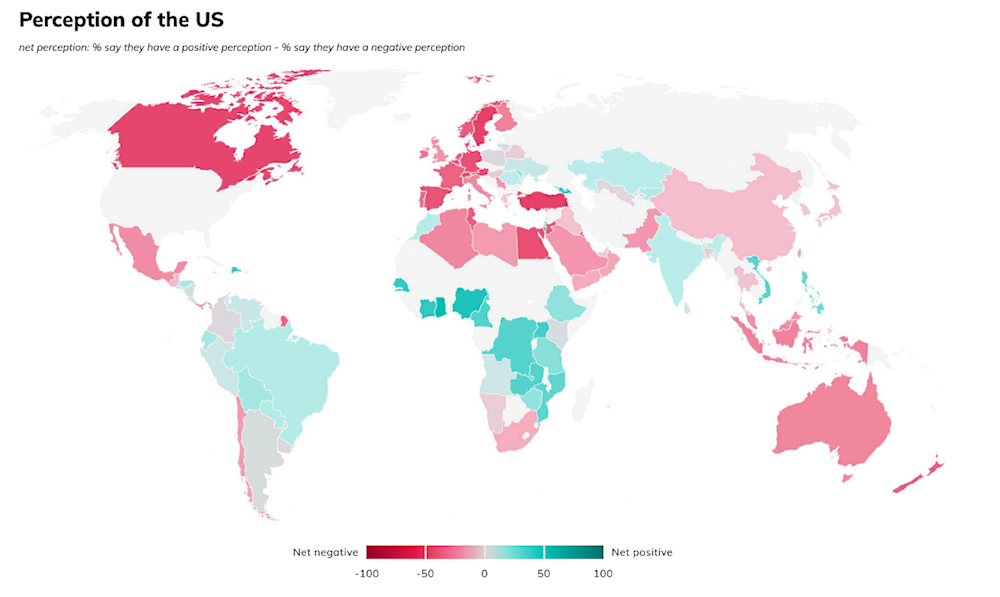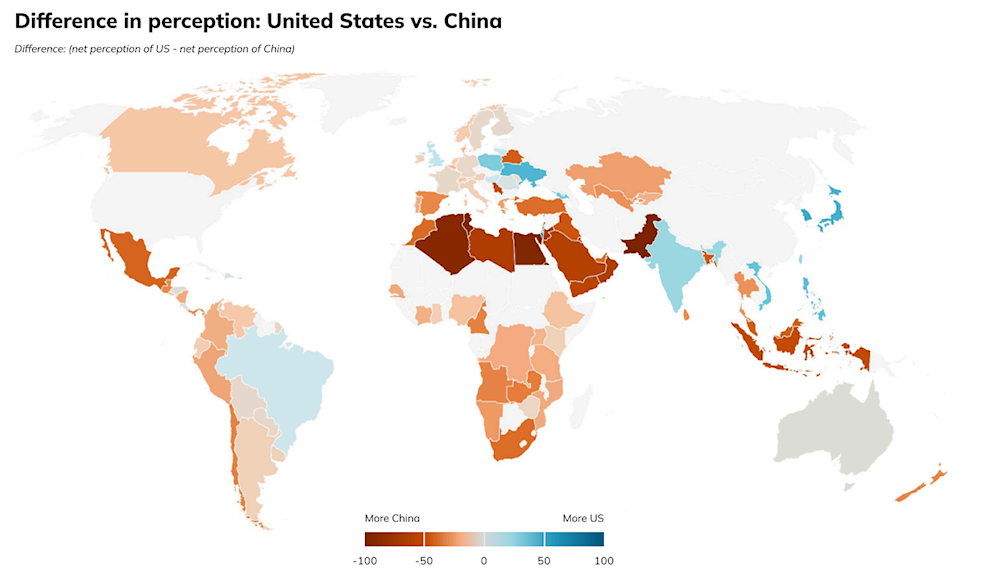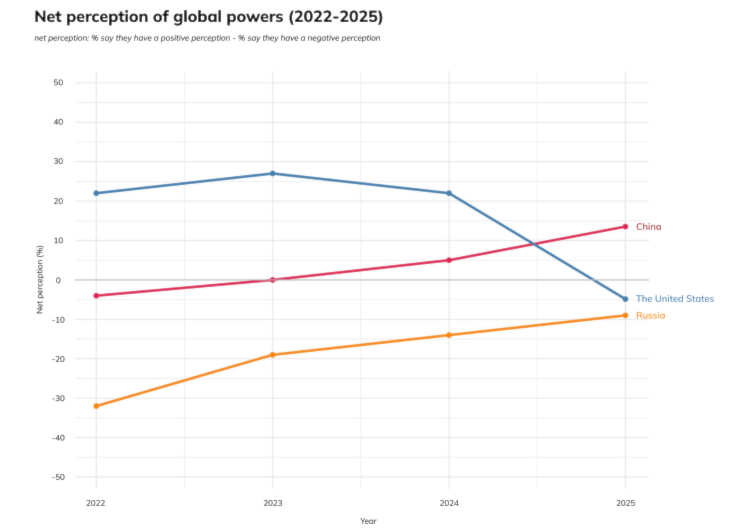China surpasses US in global favorability, says Danish study
According to the 2025 Democracy Perception Index, China has overtaken the US in global favorability for the first time. The survey reveals regional shifts, especially in West Asia, and growing dissatisfaction with US foreign policy.
-

Flags of the US and China sit in a room where then-US Secretary of State Antony Blinken met with China's Minister of Public Security Wang Xiaohong at the Diaoyutai State Guesthouse, Friday, April 26, 2024, in Beijing, China. (AP Photo/Mark Schiefelbein, Pool)
More countries around the world view China more favorably than the United States, according to the 2025 Democracy Perception Index, described as the world’s largest annual study on how people perceive democracy. This milestone marks a significant reversal in global sentiment and signals a potential shift in international alignment.
The global survey, conducted by Nira Data and the Alliance of Democracies Foundation, interviewed over 110,000 respondents in 100 countries between April 9 and April 23, 2025. The findings indicate a notable decline in the US's international image over the past year.
A recent poll finds that 79% of countries around the world have a more favourable view of China than of the United States.
— Jostein Hauge (@haugejostein) August 4, 2025
The poll, conducted by a Danish-based non-profit organisation, surveyed more than 110,000 people from 100 countries. pic.twitter.com/zOxkJyRrb2
The data shows a sharp transformation in global opinion. The US saw its net favorability rating fall from +22% in 2024 to -5% in 2025. In contrast, China maintained a positive global rating of +14%, creating a 19-point gap in favor of Beijing.
Notably, the proportion of countries where the US holds a net positive image dropped from 76% to 45% within a year. In country-by-country comparisons, 76 out of 96 nations now view China more favorably than the United States, representing a 79% to 21% margin.
While traditional US allies such as "Israel", South Korea, Japan, Poland, and Ukraine still express strong support for Washington, the report highlights these as "relative exceptions."
-

Perception of the US (screengrab from the Democracy Perception Index 2025 report)
Geopolitical shifts across the world
In Europe, a region historically aligned with the US, perceptions have shifted notably. Western European countries now frequently rate China more favorably than the US, a trend also visible in various Asian nations. This suggests the perception gap is not limited to any one region or political bloc.
The West Asia and North Africa region demonstrates the most pronounced shift. Countries such as Egypt, Algeria, Pakistan, and Saudi Arabia rate China significantly higher than the US. This reflects growing dissatisfaction with decades of US foreign policy and a potential pivot toward China’s economic and diplomatic model.
Recent findings from Morning Consult, as reported by Axios, further underscore this global realignment. Their data revealed that China’s net global favorability rating climbed to 8.8 by the end of May, while the US dropped to -1.5, a reversal from January 2024 when America's rating was above 20 and China's remained negative. Morning Consult's surveys across 41 countries highlight a significant reputational decline for the US, particularly since President Trump's return to office. His "Liberation Day" tariff announcements triggered a sharp drop in perception, briefly recovered when tariffs were reduced, but were again undermined by renewed accusations against China.
The leadership factor
The shift in perception becomes even more pronounced when examining individual political leaders. Donald Trump, despite being the most globally recognized political leader (known by 85% of respondents), suffers from an almost universally negative image. In 82% of countries worldwide, Trump has a net negative rating, significantly worse than both Vladimir Putin (61% of countries) and Xi Jinping (44% of countries).
This leadership perception gap may partly explain America's declining global standing. While Xi Jinping receives "far less negative ratings overall" with "more evenly split" global perceptions, Trump faces negative views "across nearly every region of the world, especially in democratic countries." Only in Sub-Saharan Africa does Trump receive a slightly positive rating.
-

Difference in perception: United States vs. China (screengrab from the Democracy Perception Index 2025 report)
Defense priorities
Despite rising global unrest, people worldwide overwhelmingly favor international cooperation over military buildup. In 87 out of 100 countries, citizens identified "strengthening alliances and international partnerships" as the top defense priority, as opposed to increased military spending or nuclear deterrence.
This preference for multilateral cooperation may favor China's diplomatic approach over America's more militarized foreign policy stance. Notably, "in no country did most people select 'implementing or expanding mandatory military service' as their top choice," suggesting global populations prefer diplomatic solutions to security challenges.
Looking forward

The data suggests we may be witnessing the emergence of a "post-American" global order where China's combination of economic success, diplomatic engagement, and non-interference resonates more strongly with global populations than America's military-first approach.
The implications extend far beyond bilateral US-China relations. Alliance structures built around American leadership, trade relationships that assume US centrality, and global governance frameworks designed when America was unquestionably the preferred superpower may all require fundamental reconsideration.

 4 Min Read
4 Min Read








